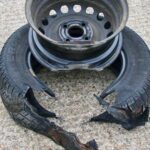Several states, such as Texas, Florida and Iowa, have introduced legislation backed by trucking industry lobbyists that could detrimentally affect truck accident victims’ ability to open a case or cap the compensation plaintiffs can win in a truck accident lawsuit.
Over the past three years, the trucking industry has engaged in a contentious lobbying campaign which has seen laws proposed in seven states, including Texas and Florida – two of the nation’s leaders in fatal truck accidents. These laws are intended to make it more difficult for victims to bring legal action against trucking companies associated with a crash, as well as limit the amount of damages that can be awarded.

Texas ranked first in the nation for truck accident fatalities in 2020 with 643 deaths.
Advocates for the industry assert that the new laws will help reduce baseless lawsuits and the potential for excessive payments, however, those advocating for safety have pointed out that not only does this stand to shield the trucking industry from accountability in relation to crashes, but also reduces the trucking industry’s motivation to act proactively in avoiding future accidents.
Texas Truck Accidents
The Texas Trucking Association, a state-level lobbying group and member of the American Trucking Association, was influential in the passing of the state’s 2021 law which requires drivers to be legally found accountable before any potential case can be made against the company. They stated that the law is intended to protects trucking companies from “biased and unfair courtroom tactics.”
Prior to the Texas law, attorneys representing plaintiffs were allowed to present evidence concerning the general practices of trucking companies, such as the amount of crashes they had been involved in, to the jury as a way of conveying that the collisions were an on-going issue. This technique, derogatorily known as the “reptile theory” by trucking lobbying groups, is said to wrongly influence the jury into deciding to provide larger verdicts against trucking companies.
The Texas law has changed this. During the first stage of the trial that calculates compensatory damages, attorneys are essentially limited to bringing forth facts directly related to the crash itself and whether the company was negligent in hiring or vehicle maintenance before the crash. Evidence concerning the company’s history can be used if the defendant or driver is shown to be culpable and the case moves to the second phase. Trucking groups have announced stern intentions to pass similar laws in other states.
Florida Truck Accidents
In March, the trucking lobby was successful in passing a law in Florida–the third most dangerous state in the nation for trucking fatalities–which would make a number of changes to civil litigation. This included a requirement for medical bills to only be presented at trial as the amount paid rather than the amount initially billed, as well as reducing the statute of limitations for personal injury claims from four to two years. Safety advocates worry that victims of crashes may have a harder time pursuing accountability, as two years is a much shorter time frame to explore their options and build a claim. The law has also sought to cap the amount of noneconomic damages that a plaintiff may receive, which are losses that cannot be measured in a monetary amount, such as the loss of a child.
Iowa Truck Accidents
In April, the Iowa Legislature passed a law capping pain and suffering payments to $5 million in accidents involving commercial vehicles, despite exceptions for extreme cases of negligence such as intoxicated driving. Supporters of the law have argued that legal professionals are gaining too much compensation from trucking litigation, and thus the cap would aide in fixing this prevalence. In spite of this, those opposing the new law believe that juries should maintain authority in determining how much should be awarded after a crash.
Truck Accident Liability
If businesses are faced with paying for potential accidents caused by their drivers, they will adopt safety strategies to prevent such events from occurring, thus making a positive difference in society. Tort reform decisions have a significant effect on the way that businesses operate, by setting out who is responsible for paying for the costs of injuries that occur. These decisions also provide an incentive for businesses to take greater measures to ensure safety, knowing that they may be held accountable financially if they do not. In this way, the threat of having to pay for any potential injuries that their drivers may cause, encourages companies to take proactive steps in order to reduce the risk of such accidents. Ultimately, this results in a safer environment for everyone.
Speak to a Lawyer Now
Search Blog
"*" indicates required fields










